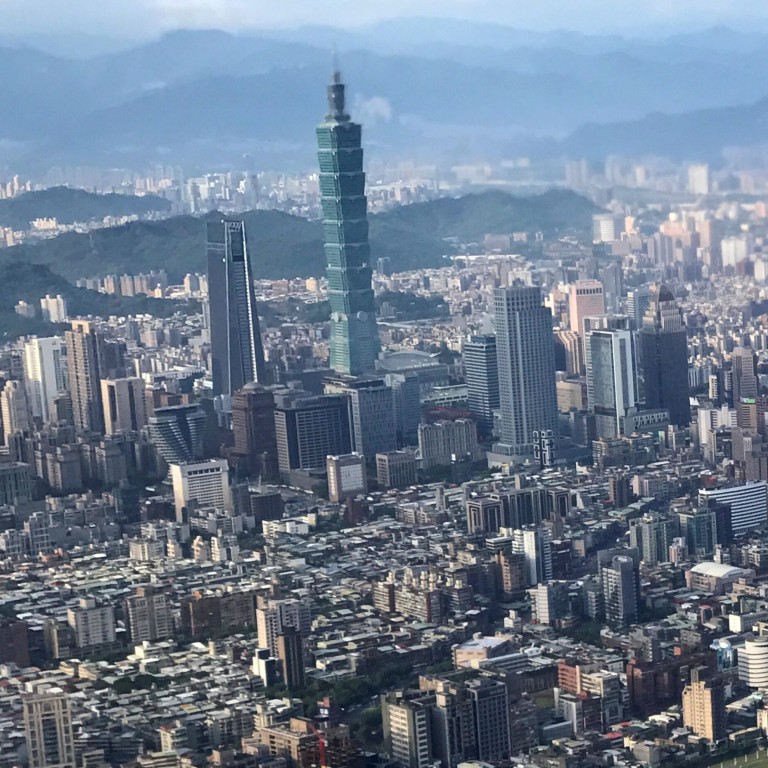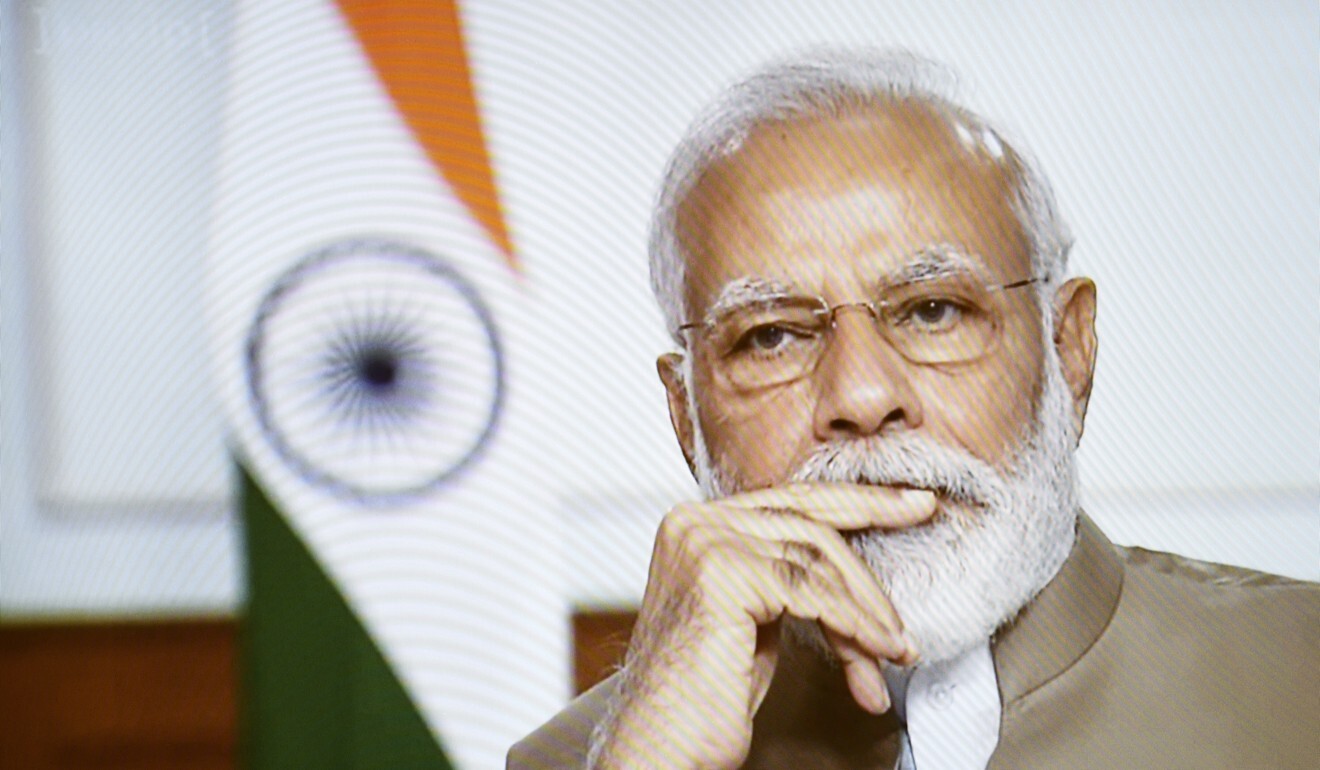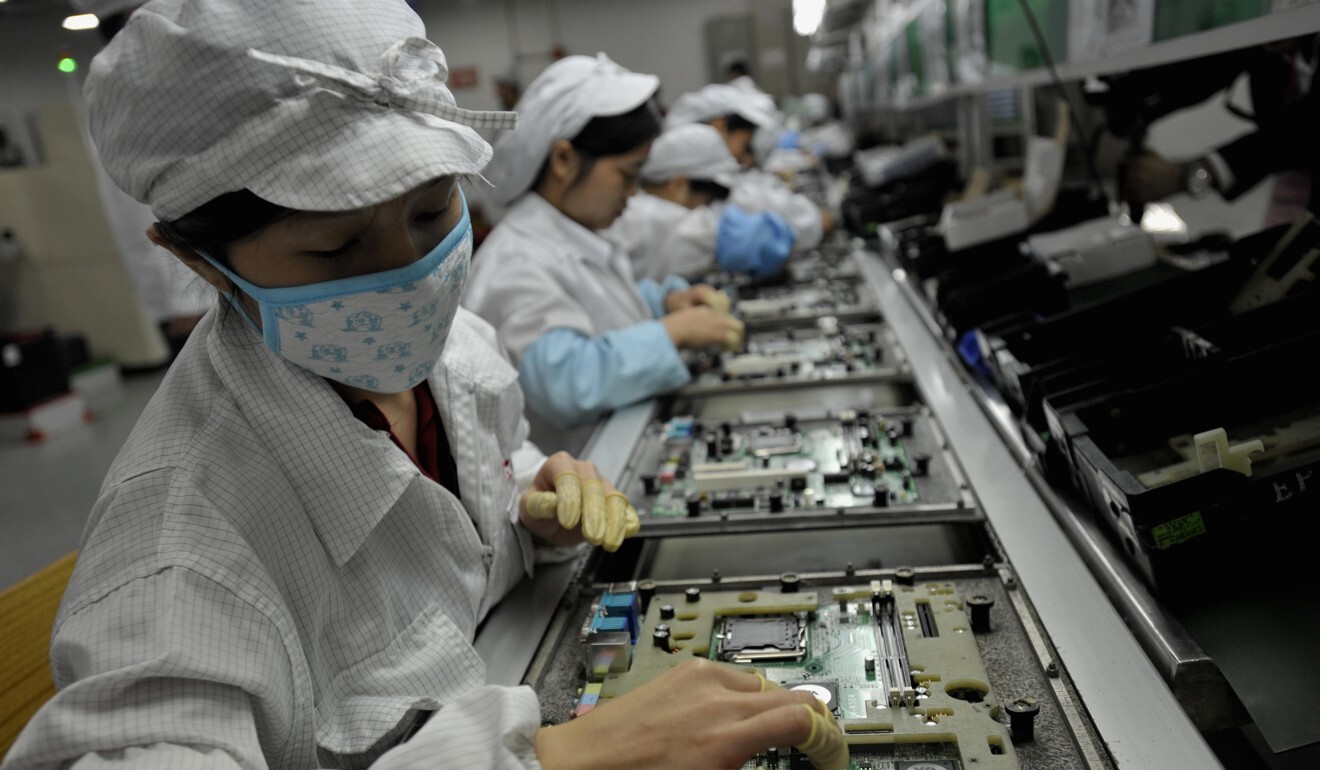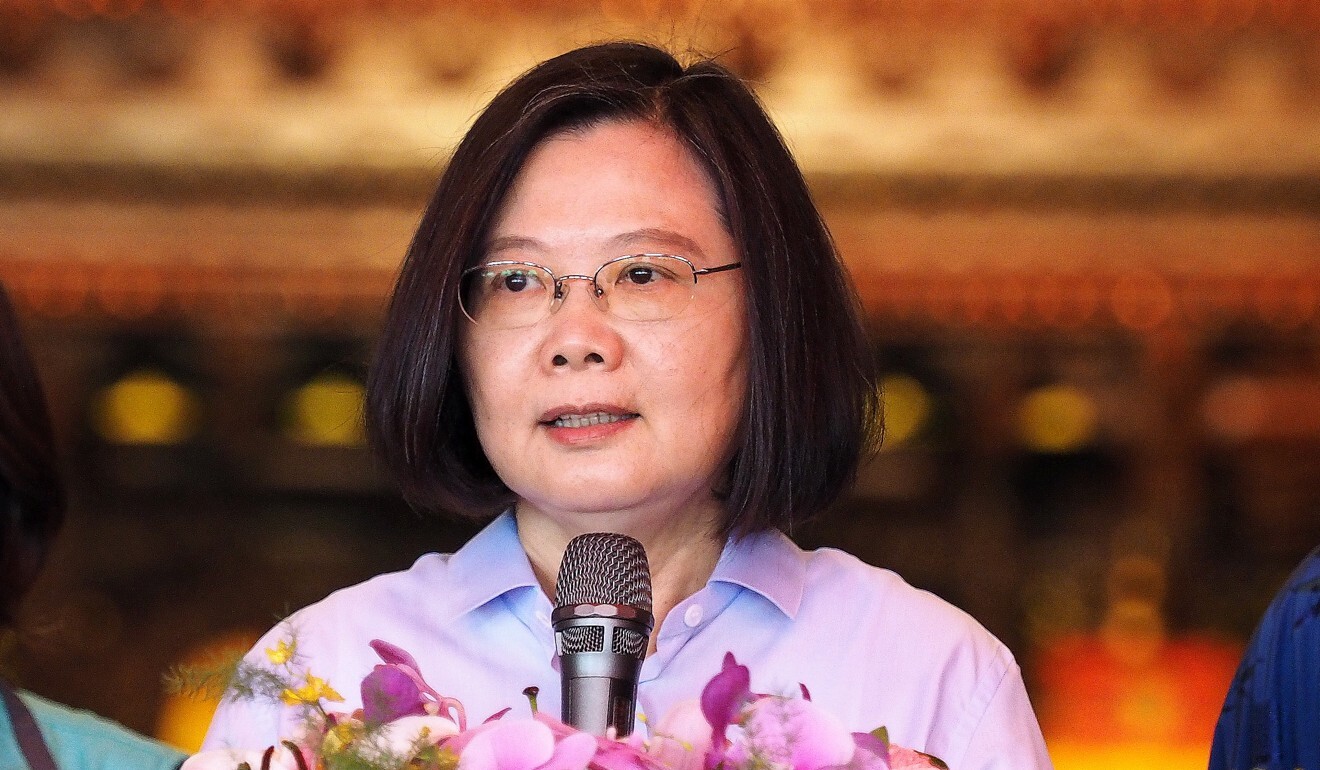
As US-China tensions heat up, Taiwan’s firms pivot to India
- India’s giant market, inexpensive skilled workforce and generous tax breaks aren’t the only things drawing investment from Taiwanese firms
- Fears over the fallout from US-China tensions and a desire to diversify supply chains in the wake of Covid-19 are also fuelling the trend
But analysts and the Taiwanese government say the firm’s swing into India is only the latest example of a trend that has been gaining pace over the past four years as ties between New Delhi and Taipei strengthen.
China-India tensions: will New Delhi play the Taiwan and Tibet card?

According to the business consultancy Dezan Shira & Associates in New Delhi, investments by Taiwanese firms in India had reached US$360.5 million by the end of 2018.
A spokesperson for Pegatron cited the potential of India’s market, its labour force and “the efficiency of our business operations” as being behind its move.
Is Taiwan the answer for firms leaving Hong Kong? It’s complicated
A GROWING TREND
About 140 Taiwanese companies are now operating in India, mostly in manufacturing, according to Dezan Shira, which says there has been an upswing of interest over the past four years.
The appliance maker Teco, electronics manufacturer Delta Electronics and tyre firm Maxxis are among the signature Taiwanese companies scoping out opportunities in the country, reports the professional services firm Deloitte. Meanwhile, the electronics assemblers Foxconn, Wistron and MediaTek – which already manufacture in India – are tipped by local media reports to make expansions worth hundreds of millions of dollars.

Last December, state-run oil supplier CPC Corporation opened a New Delhi office. A CPC spokesman in Taipei said this month the company was deliberating whether to set up a refining plant in India to take advantage of its market size. A decision is expected as early as next year.
Taipei-based mobile internet service provider GMobi entered India in 2012 to help set up e-payment software systems as smartphone use was taking off. It has never looked back. “The population is huge,” said Brian Chen, investment director of the Oxymoney subsidiary that employs 60-plus people at a site near New Delhi. “The demand was quite large too.”
Oxymoney had wanted to enter an emerging market but felt Southeast Asia was too spread out geographically, Chen said.
Delta Electronics said in 2015 it planned to boost its India presence by investing US$500 million over 10 years on electronics production.
Beijing should tell Taiwan and Hong Kong what it has to gain from them
THE LURE OF INDIA
“The main thing India offers is a captive consumer base and access to the domestic market as well as a cheap labour source and the ease of doing business,” said Venkat Pasupuleti, manager of a US$130 million India fund operated by Dalton Investments in the US.
The country has made itself more attractive to foreign investors by cutting the corporate income tax rate from 30 to 22 per cent in September and taxing start-ups at just 15 per cent. Investors operating in special economic zones can avoid tariffs as well as income taxes. Labour costs 15 per cent less in India than in China, Pasupuleti estimated.
Inflation was under control at around 3 per cent and property prices were coming down, said Pasupuleti, who expected the Modi government to continue to break down barriers to foreign investment.
For investors who sell in India, the country’s relatively young population of 1.3 billion and rapid economic growth before the coronavirus outbreak signal increasing consumer power.

02:19
Taiwan military drill simulates coastal attack amid rising tensions with mainland China
PROBLEMS WITH BEIJING
Japan, South Korea and mainland China all invest more in India than Taiwan.
But officials in New Delhi had taken a particular interest in Taiwan as they had grown tired of geopolitical problems with mainland China, said Koushan Das, assistant manager for business intelligence at Dezan Shira.

Since Tsai’s election, Beijing has suspended official exchanges with Taiwan, staged war games, and poached seven of the island’s allies.
Despite the tensions, statistics from the island’s finance ministry this month showed Taiwan’s trade with mainland China had actually soared in the past six months amid strong demand from the mainland for chips and other electronic and telecoms products.
However, observers warn this boom could be short-lived if the US asks Taiwan to stop its hi-tech exports to mainland China.
For now, observers say, strengthening links between India and Taiwan offer both a way of hedging their exposure to the geopolitical risks regarding trade with mainland China.
“Both sides have taken a conscious effort to enhance their relations to meet the challenges of the ongoing geopolitical tensions,” Das said.
“India has realised the growing technical capabilities of Taiwanese firms and how they can be utilised to support the Indian manufacturing sector, while Taiwan sees India as a means to reduce dependency on China.”

